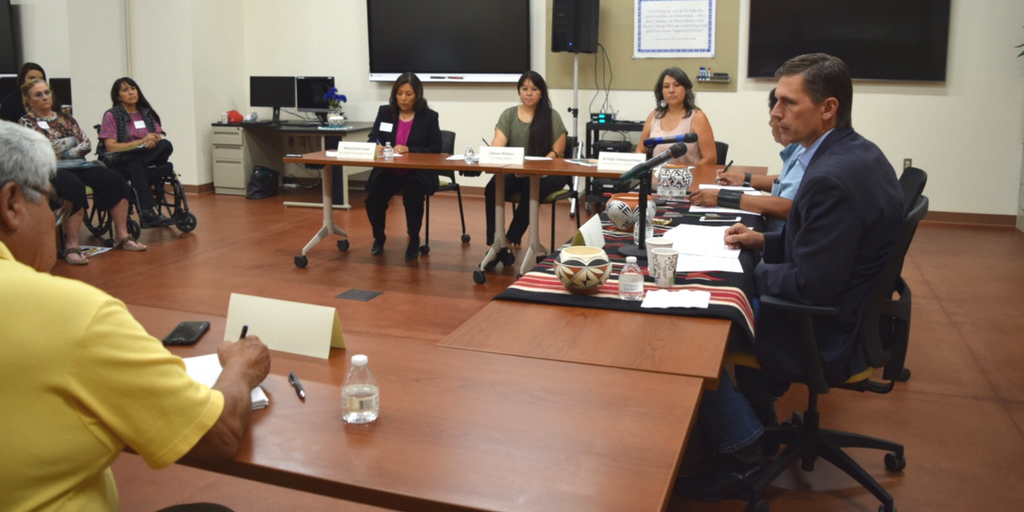Heinrich Hosts Tribal Broadband Listening Session In Santa Fe
SANTA FE, N.M. – U.S. Senator Martin Heinrich (D-N.M.) hosted a listening session at the Santa Fe Indian School with members of two Pueblo library consortiums representing the Pueblos of Cochiti, Jemez, Zia, Santa Ana, San Felipe, and Santo Domingo to discuss legislation he plans to introduce to improve broadband connectivity in Indian Country.
“Access to high-speed internet is increasingly essential to daily life. We must take steps to connect all of our tribal communities to the internet so all of our students and children can compete on an even playing field and learn the skills they need to succeed in the 21st century,” said Senator Heinrich. “Strengthening broadband access across New Mexico, particularly in our rural and tribal communities, will improve education, boost the economy and increase public safety and civic engagement.”
In New Mexico and across Indian Country, broadband access is critical for local economies and small businesses and is a cornerstone to improving tele-health services, education, and job-training opportunities. Yet, 80 percent of New Mexicans who live in Indian Country do not have consistent access to high-speed broadband.
The discussion focused on the FCC Schools and Libraries Program, known as E-rate, that provides discounts to assist most schools and libraries obtain high-speed internet access and telecommunications at affordable rates. While most of the nation’s public libraries have received E-rate support, only an estimated 15 percent of Tribal libraries receive E-rate funds. Information on Senator Heinrich’s bill, the Tribal Connect Act of 2017, is available here.
“Tribal schools and libraries have been going at it alone to increase their access to broadband Internet - with limited and varied success. The new E-rate opportunities allowed the two tribal consortia in New Mexico to address connectivity issues together by aggregating demand and working with our tribal neighbors, to create a network that is exponentially faster at a fraction of the cost. Equally importantly, we designed it to bring new distance learning potential to the Pueblos, including peering with UNM for higher education opportunities and with our pueblo schools to use technology for native language revitalization,” said Kimball Sekaquaptewa, Manager of AMERIND Critical Infrastructure. “As tribes, we are doing what others have not done. By working together, we are solving the lack of broadband on tribal lands for improved educational outcomes for our youth and overall community well-being. These tribal consortia applications are a model for how E-Rate can succeed and make a profound difference in Indian Country.”
“Infrastructure availability drives and creates growth. Access to the internet is a new, but equally essential infrastructure need to our tribal communities like water, power, telecommunications, and roads,” said Everett Chavez, Tribal Administrator of Santo Domingo. “Pueblo Broadband availability and presence will bring about tremendous benefit to our rural tribal communities, and will provide critical impetus toward tribal community development initiatives. On a broader level, broadband connectivity will support many tribal efforts to provide community members opportunities in educational, healthcare, employment, to name a few. In addition, it will allow tribal governments to grow economically and to stay in stride with the rest of the world technologically. We may never reach parity with the rest of the world or country, but we cannot deny our children or community members access to important tribal or self-empowerment opportunities.”
 PHOTO: U.S. Senator Martin Heinrich hosts a listening session at the Santa Fe Indian School with tribal representatives to discuss broadband connectivity in Indian Country. August 9, 2017.
PHOTO: U.S. Senator Martin Heinrich hosts a listening session at the Santa Fe Indian School with tribal representatives to discuss broadband connectivity in Indian Country. August 9, 2017.